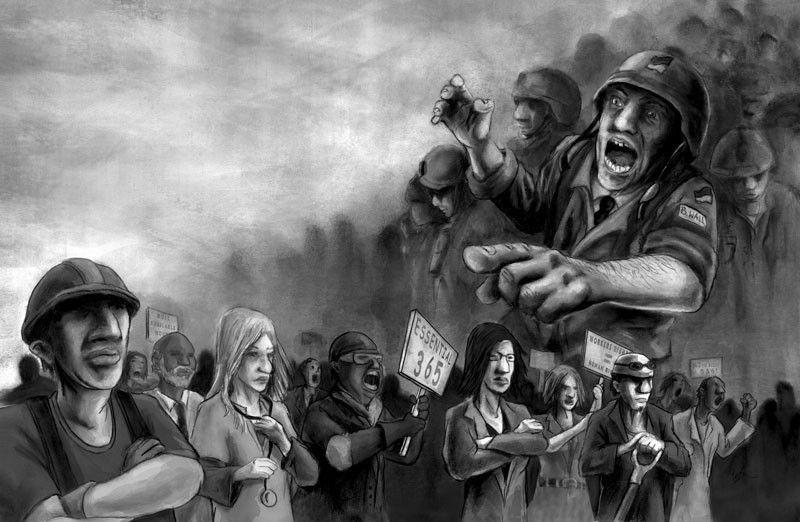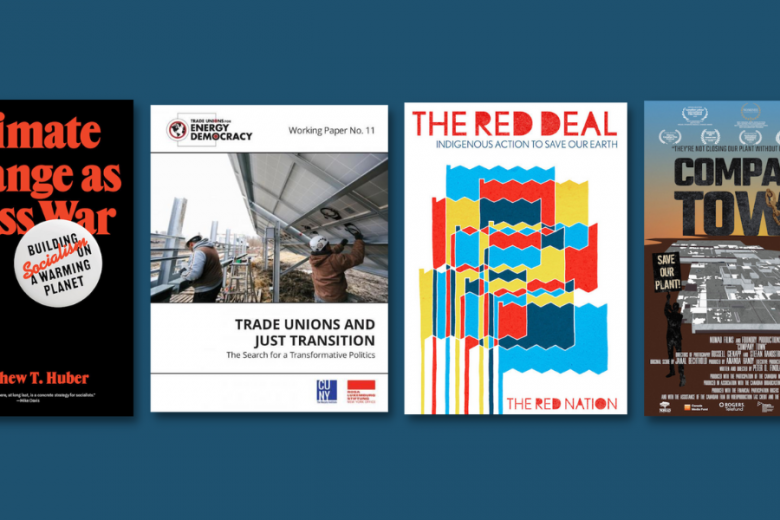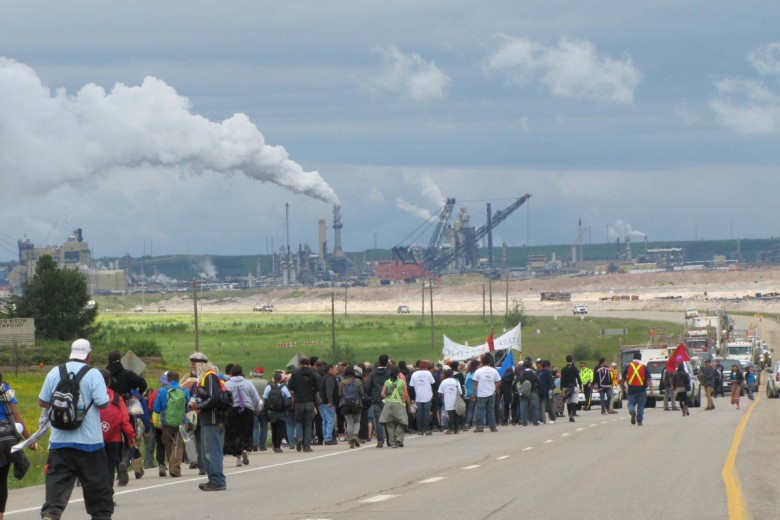
Saskatchewan Premier Brad Wall has had it pretty easy since defeating Lorne Calvert and the New Democratic Party in the November 2007 provincial elections. And with Calvert’s recent resignation as leader, Wall will enjoy a further period of easy living as the NDP goes through a leadership contest. You can call this a honeymoon period for the new Saskatchewan Party government, or you can admit there are just no fundamental ideological differences between the two major parties on which to base an effective opposition. The Calvert government, desperate to stave off defeat at the hands of the surging Saskatchewan Party, implemented much of the Saskatchewan Party pro-business economic program before its defeat at the polls last November, which is why former NDP finance minister Harry van Mulligan could state that the Saskatchewan Party’s first budget was pretty much a replay of earlier NDP budgets. And that is why, at the end of the spring 2008 legislative session, former premier Lorne Calvert concluded that the Saskatchewan Party’s legislative agenda was pretty much what an NDP government might have done, with the exception of the attacks on labour. In such a situation, when there is bipartisan agreement on broad economic and social policy, debate in the Saskatchewan Legislature is reduced to nit-picking and name calling, with both parties vying for the business lobby’s support as the party best able to administer the operation of resource-extraction capitalism in Saskatchewan.
Wall has proven a shrewd leader so far, focusing his efforts on a few key initiatives he is determined to drive through, while continuing to muzzle the social conservative diehards in his caucus for fear of alienating the province’s moderate majority.
Wall’s first-term goals consist of crippling the labour movement, expanding the uranium industry beyond mining and milling, and institutionalizing the business lobby’s policy clout and credibility through the formation of Enterprise Saskatchewan, a publicly-funded, business-dominated agency to “advance economic development goals, strategies and clear measurable targets for economic performance.” The political lynchpin in this agenda is the labour movement – the source, in the past, of the most significant resistance to right-wing governments like Ross Thatcher’s Liberals in the 1960s and Grant Devine’s Tories in the 1980s. Wall knows the labour movement is the only constituency capable of mobilizing an effective opposition to his plans.
Organized labour, with a membership of around 100,000, or one in four workers, is relatively strong in Saskatchewan, thanks to modestly friendly labour laws put in place by NDP governments over the years. Saskatchewan has the fourth highest rate of unionization among Canada’s provinces, far ahead of Alberta and even slightly ahead of B.C. To right-wing ideologues and their business lobby bosses, this is not acceptable.
Wall has embarked on a two-pronged attack on labour – the first prong targeting the large public sector, the second targeting the private sector. Most of the attention of the corporate media has been toward the attack on public sector unions contained in the recently passed Public Service Essential Services Act. Calvert and the NDP opposed the act, describing it as a fundamental attack on the right to strike that gives overwhelming power to employers to designate which workers are deemed essential. Quite simply, it will mean the end of effective legal strikes in the public sector. Critics maintain that it will not bring labour peace, but will increase conflict and lead frustrated public sector unions to embark on illegal strikes. With this law in place, management in the public sector can laugh off a union’s threat of strike action, knowing full well that any strike can be rendered powerless by the imposition of ludicrously long lists of those workers forbidden from participating because they are considered “essential.”
Wall’s greatest adversary in his effort to shackle public sector workers is the nurses. In the past, regardless of the party in power, nurses have proven particularly adept at holding effective legal strikes, followed, when necessary, by illegally defying back-to-work laws, all while maintaining broad public support. Wall did not want to test his law first with the nurses, nor with the teachers, since governments can’t help but lose public support in fights with these two groups. Hence, Wall’s first move was to neutralize the nurses by offering them a sweetheart four-year contract that included hefty pay increases of 35 per cent over the life of the contract for general duty nurses. The 7,200-member Saskatchewan Union of Nurses voted 78 per cent in favour of the deal. This effectively neutralizes the nurses until after the next election. Similarly, the Saskatchewan Teachers’ Federation is currently engaged in contract talks and Wall is expected to do everything he can to ensure a peaceful settlement.
Wall would prefer to first use this law against the often more politicized and militant government workers or hospital workers, should they dare to go on strike. These groups do not have deep support among the public and have to work hard to rouse public sympathy. This is particularly true for government workers.
The first real test of Wall’s law will come shortly, as the three unions representing about 25,000 hospital and health-care workers – Canadian Union of Public Employees, Service Employees International Union, and Saskatchewan Government and General Employees Union – enter into negotiations in the coming months. These unions will be seeking settlements similar to that achieved by the nurses at a time when the province’s coffers are full. Wall will plead looming poverty in the context of the economic crisis, and may even demand union-crippling concessions, depending on how confident he feels heading into a showdown. If strike action occurs and the Wall government decides to use the Public Service Essential Services Act to break the strike, the law will be tested on the ground as the Saskatchewan Federation of Labour will have to decide whether to follow through on its promise of active solidarity up to and including a general sympathy strike.
The much more serious attack on organized labour, however, is found in the amendments to the Trade Union Act. The new amendments will affect all organized workers, but most significantly those in the private sector with hostile bosses and those workers currently without union representation that might hope to succeed in an organizing drive. The business lobby is delighted with these amendments, proclaiming they will send a clear message to businesses and investors looking at Saskatchewan that the climate here has finally become “business-friendly.”
“Business-friendly,” of course, is simply a right-wing code word for “union-hostile.”
The amendments to the Trade Union Act will make it more difficult to sign members up to a union. Certification will require a compulsory vote in which a majority of those eligible to vote must actually cast ballots before a certification vote can succeed. (By this standard, most municipal governments, and even some provincial governments, would not be able to take office – many only winning elections in which less than 50 per cent of eligible voters actually voted.) Furthermore, employers will now be free to intervene during the certification process, and during collective bargaining, by communicating “facts or opinions” to employees – opinions, presumably, like “if you sign a union card and vote for the union the company may move to Alberta” or “if you go on strike we may have to close down.” In such situations, the line between an opinion and a threat is blurry indeed.
These amendments will not only make it virtually impossible to organize the unorganized, but will cripple unions during contract negotiations. Finally, these pro-business amendments will lead to a series of de-certification drives as some employers embark on aggressive union-busting campaigns. Curiously, the NDP has been virtually silent on this more serious attack on organized labour.
There is no delicate way to put this. The Wall government has declared war on Saskatchewan’s working class. This looming showdown with the labour movement is the first and foundational step in his broader agenda.
Further down Wall’s wishlist
Premier Brad Wall is determined to expand Saskatchewan’s nuclear industry, now limited to uranium mining and milling. By earlier floating a trial balloon about the possibility of a small nuclear reactor at Elbow, Wall has begun a campaign to soften public resistance to further nuclear-related developments in the province. Wall, of course, pleads wide-eyed innocence, since the paper discussing a nuclear reactor was prepared under the NDP and then deep-sixed – until, oops, the Wall government released it.
For a variety of reasons, it is highly unlikely that Saskatchewan will ever build a nuclear reactor. First, it is too costly (more than $20 billion for a province of only one million people), and even if privately built, the government would doubtless have to provide loan guarantees. Second, Saskatchewan does not need a nuclear reactor; the only purpose would be to put the province at risk in order to export electricity to the U.S. power grid. Third, even the private sector nuclear industry favours Alberta over Saskatchewan should any reactor be built. Fourth, most reactors have, in the long run, proven uneconomical, with cost overruns, construction delays, long delays in start-up as bugs are worked out, and frequent breakdowns after commissioning. And finally, with the spectres of Three Mile Island and Chernobyl still hanging over the issue, public resistance will galvanize if the project ever becomes more than just speculation.
So what is Wall up to? It’s a classic bait-and-switch manoeuvre: he is softening up the public in order to embark on uranium refining in Saskatchewan, something hotly debated and rejected during the Blakeney years. After drawing out and seeking to isolate the anti-nuclear crowd in a heated public debate on a nuclear reactor, Wall will pull that option off the table and propose instead that Saskatchewan allow the less dangerous, less costly, less risky and hugely profitable (jobs, jobs, jobs; money, money, money) uranium refining business to set up shop.
Wall also wants to leapfrog the cadre of senior civil servants who give expert advice on public economic policy – advice which might not meet his conservative, free-market ideological standards. When the arms-length, unaccountable advisory group Enterprise Saskatchewan is up and running, it will begin proposing economic policies, priorities and strategies directly to the premier and cabinet, bypassing the senior civil service and the senior economic gurus in the Crown sector. Wall will use the agency as a tool to shift the economic policy consensus, which he officially now shares with the NDP, dramatically to the right. A key feature of this shift will be an attack on the Crown corporations and their central place in the province’s economy.
Outright privatization proposals will not be entertained since Wall has pledged not to privatize the Crowns. Recent reports on the major Crowns – telephone, power, natural gas, insurance – have been very positive. They are doing well and making large profits for the public coffers. Nevertheless, Saskatchewan Party ministers have commented on how they want the Crowns to stick to their “core” activities; to avoid aggressive expansion outside those cores, especially outside the province; and not to become overly active in competing with private businesses. Wall has jumped the gun on this, thus sending a clear signal to Enterprise Saskatchewan, by announcing the privatization of eight “non-core” and/or “underperforming” public investments by four of the Crowns. Of the eight, six have provided profits to the public coffers. He wants it to be very clear that public ownership or public entrepreneurship will not be considered acceptable policy goals for inclusion in the province’s future economic strategy.
These themes will be picked up by Enterprise Saskatchewan. The Crowns, we should expect to hear, should narrow their focus to their core activities, and thus perhaps shed themselves of some or all of their “non-core” activities; Crowns should not, as a matter of principle, seek opportunities to compete with private-sector entrepreneurs; Crowns should begin to develop a series of partnerships with the private sector as they develop and expand. And, presto, before your very eyes, the autonomous, publicly accountable Crowns, free to pursue broader public policy objectives, will metamorphose into joint ventures with private capital while slowly divesting themselves of many of their current “non-core” (and very profitable) ventures. Wall will celebrate this as the final step in making Saskatchewan totally “business-friendly;” no longer will fully publicly owned Crowns compete with private capital, frightening investors away. Instead, Saskatchewan will have big, friendly, joint-venture public/private partnerships where we all work in harmony for the greater good (i.e. private profit from public risk). Goodbye Crowns, hello unfettered capitalism.
The NDP has fumbled the public ownership ball badly over the years, satisfied to rest on the laurels of the old CCF innovators. The NDP has largely stopped defending public ownership and public entrepreneurship as a good general economic strategy, embracing private capitalism for everything but the basic Crowns. The fact is that public ownership in a capitalist economy may be just a case of state capitalism, since such companies behave like all other corporations. But the bottom line is that the Saskatchewan people own the Crowns and are thereby the sole beneficiaries of the profits earned, and the Crowns can be used as instruments of broader social and economic public policies. For such reasons, full public ownership is in the public interest, even if such public corporations must claw aggressively against rapacious capitalist competitors.
The gathering storm
Wall’s apparently “modest” and “restrained” agenda (according to his supporters in the corporate media) is in fact very ambitious indeed. This “modest” agenda includes: smashing and taming organized labour, a significant expansion of the nuclear industry in Saskatchewan after more than three decades of strictly limiting it to mining and milling uranium, and the erosion of Saskatchewan’s large and autonomous public sector. In other words, Wall is out to remake Saskatchewan according to his right-wing, pro-business ideals.
Wall knows from past experience that in order to pull this off, organized labour in particular – and the working class in general – must be neutralized and, if possible, removed as an active political player in the province. The beginning of the end of both the Ross Thatcher and Grant Devine regimes was first rooted in active resistance from the working class and its organizations. Wall is determined to avoid a similar fate.
Is the Saskatchewan labour movement up to the heavy task history has again imposed upon it? Is it ready and willing to do what has to be done? That is as yet unclear. Saskatchewan Federation of Labour president Larry Hubich has warned of the possibility of a general strike if the Wall government uses these laws to break strikes and shackle trade unions. The federation has launched a constitutional challenge of the two labour laws in the courts on the grounds that they are Charter violations of the right to free collective bargaining and to organize new unions. The Saskatchewan Union of Nurses has also launched its own legal challenge of the constitutionality of the essential services law, anticipating future battles with the Wall government. The Federation has also filed a formal complaint about the two laws with the International Trade Union Confederation, which could result in official international criticism of the laws by the International Labour Organization, an agency of the United Nations.
But the real political test of the laws will occur when strike action is taken. If the Federation can organize broad solidarity among its affiliates, up to and including some forms of sympathy job actions, and if the labour movement can win the battle for public support, then it could be the beginning of the end of the Wall regime. If, however, such efforts do not occur, or fail if they do occur, and strikes are successfully smashed by the Wall government and offending unions are financially crippled by huge fines, the business lobby’s dream of a tame, cap-in-hand working class in Saskatchewan could yet be realized.
J. F. Conway is a University of Regina political sociologist and the author of The West: The History of a Region in Confederation. He is also a regular political columnist appearing in Regina’s prairie dog and Saskatoon’s Planet S.






